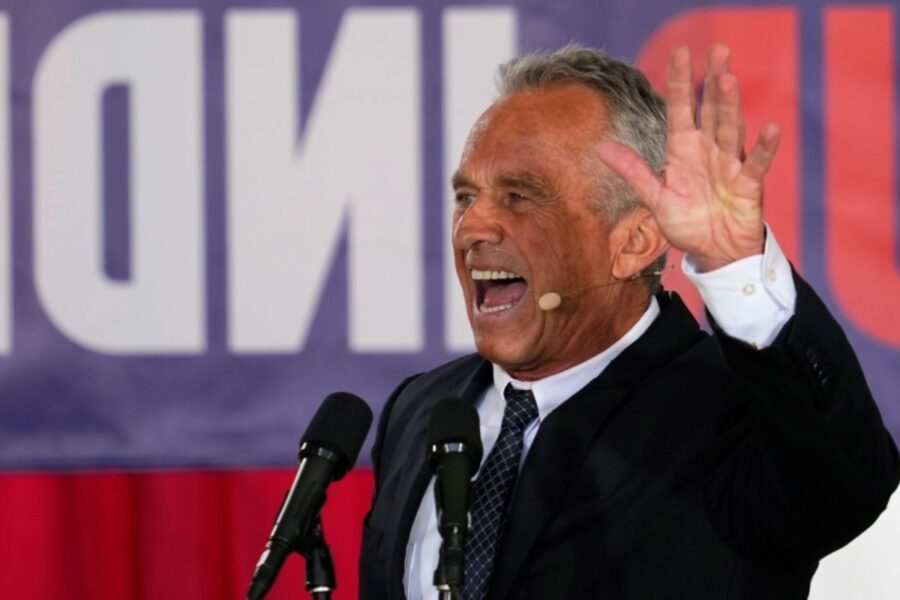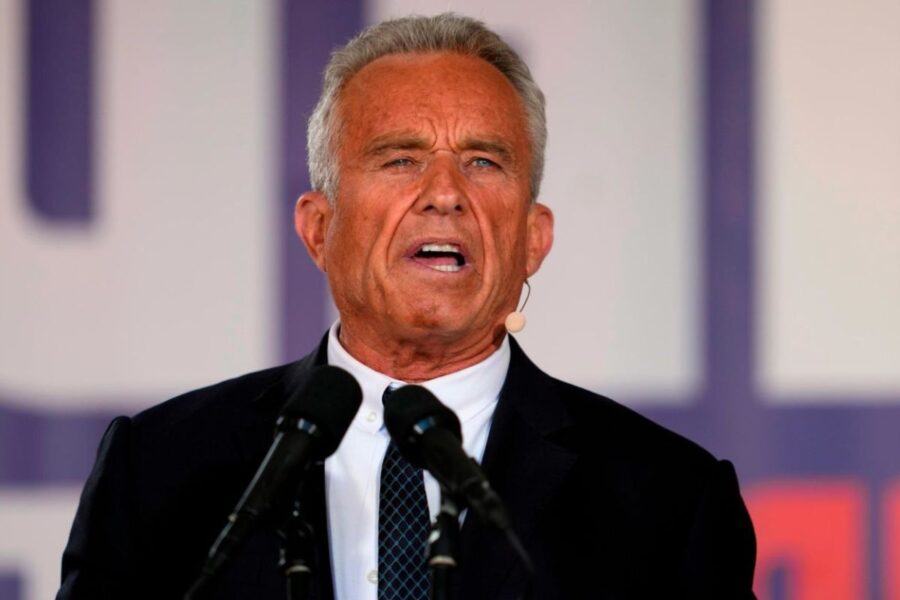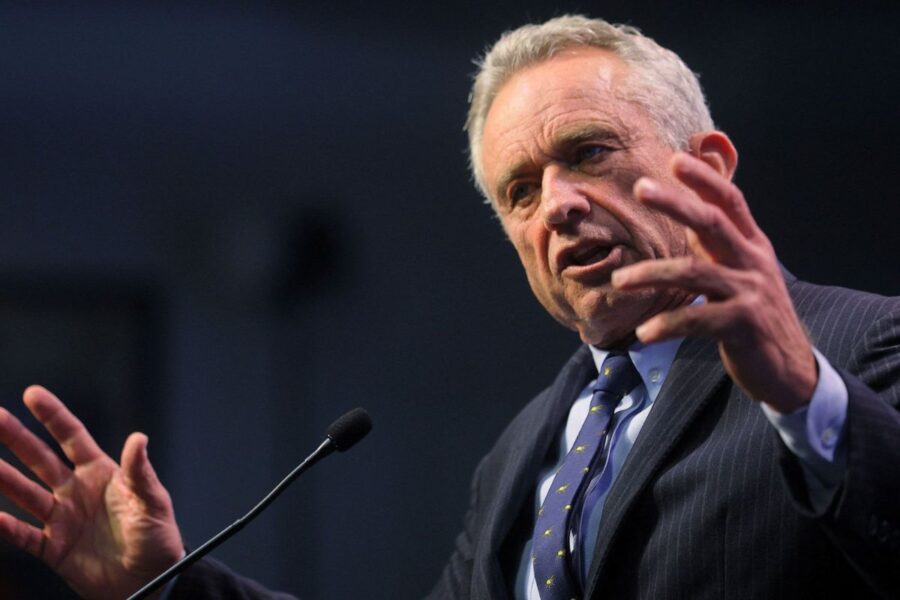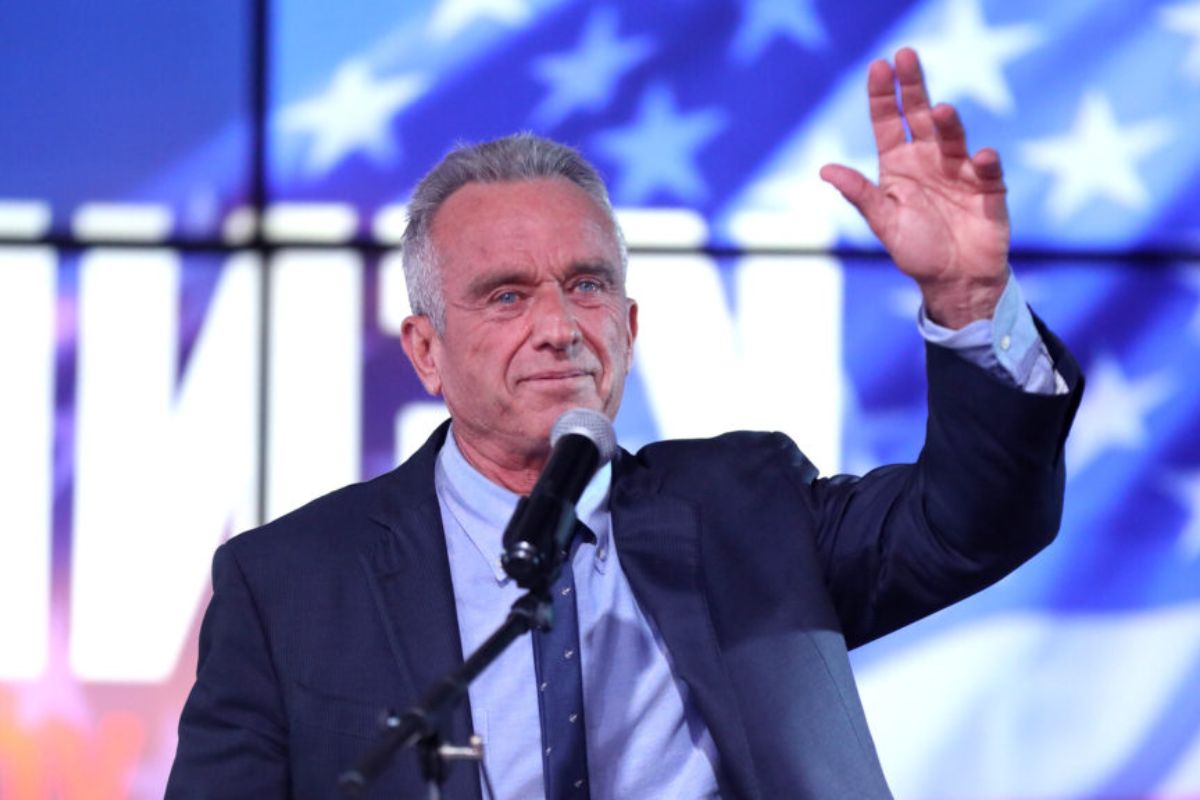RFK Jr. to Talk at University of Alabama: Renowned environmental activist Robert F. Kennedy Jr. is set to deliver a thought-provoking address at the University of Alabama, igniting discussions on pressing environmental challenges and potential solutions.
Kennedy’s extensive knowledge and expertise in the field make this event a must-attend for aspiring environmentalists and scholars alike. With his unique campaign strategy and remarkable popularity, his talk promises to shed light on the historical context of third-party candidates and their potential impact on future elections.
This event marks a significant milestone in the pursuit of a sustainable future.
Key Takeaways
- Robert F. Kennedy Jr. will be delivering a speech at the University of Alabama on January 24th, focusing on issues relevant to the younger generation.
- Kennedy’s popularity among independent voters is increasing, and his appeal to this group is crucial for his campaign’s success.
- Third-party candidates, such as Theodore Roosevelt and Ross Perot, have had a historical impact on presidential elections, bringing attention to specific policy issues.
- Kennedy’s address at the university suggests a deliberate effort to attract independent voters and generate momentum for his campaign, presenting himself as a viable alternative to the two major parties.
Introduction and Event Details
Robert F. Kennedy Jr.’s upcoming speech at the University of Alabama will focus on issues relevant to the younger generation. Scheduled to take place on January 24th at the Sellers Auditorium in the Bryant Conference Center, the event will span from 1 to 3 p.m.
Kennedy, an independent presidential candidate, aims to engage the student community with his address. The University of Alabama has chosen a prominent venue for this occasion, highlighting the significance of the event.
Kennedy’s speech is expected to touch on topics that directly impact the younger generation, such as education, climate change, and social justice. With his extensive experience and background in political activism, Kennedy’s insights and perspectives are anticipated to resonate with the student audience.
This event offers an opportunity for students to gain a deeper understanding of current issues and potentially be inspired to take action.

Kennedy’s Popularity and Campaign Strategy
Continuing the discussion from the previous subtopic, Kennedy’s increasing popularity among independent voters is a testament to the effectiveness of his campaign strategy. Here are three key factors contributing to his rising popularity:
- Appeal to Independent Voters: Kennedy’s ability to resonate with independent voters, as evidenced by his lead in the Quinnipiac poll, is crucial to his campaign’s success. By positioning himself as a third-party candidate, Kennedy has tapped into the growing dissatisfaction with the two major parties and their candidates.
- Emphasis on Issues: Kennedy’s campaign strategy prioritizes addressing the concerns and issues that resonate with voters across the political spectrum. By focusing on key issues such as healthcare, climate change, and income inequality, Kennedy has been able to garner support from a wide range of voters.
- Authenticity and Charisma: Kennedy’s personal charisma and authenticity have played a significant role in his increasing popularity. Voters are drawn to his genuine approach and ability to connect with them on a personal level, making him a relatable and trustworthy candidate.
Kennedy’s campaign strategy has proven successful in attracting independent voters and solidifying his popularity in the race.

Historical Context of Third-Party Candidates
Kennedy’s increasing popularity among independent voters sets the stage for an exploration of the historical context surrounding third-party candidates in presidential elections. Throughout history, third-party candidates have played a significant role in shaping the dynamics of elections, even if they did not secure victories. Two notable examples include Theodore Roosevelt in 1912 and Ross Perot in 1992.
| Election Year | Third-Party Candidate | Impact |
|---|---|---|
| 1912 | Theodore Roosevelt | Split the Republican vote, allowing Democrat Woodrow Wilson to win |
| 1992 | Ross Perot | Garnered nearly 19% of the popular vote, influencing the outcome and highlighting economic and budgetary issues |
These candidates demonstrated the ability of third-party candidates to challenge the two-party system, bring attention to specific policy issues, and shape the final outcomes of presidential elections. While their victories remained elusive, their impact on American politics cannot be overlooked. The historical context of third-party candidates serves as a reminder of the potential influence independent candidates can have on the electoral process.
Significance of Kennedy’s Address and Campaign Timing
The strategic timing and relevance of RFK Jr.’s address at the University of Alabama highlights the significance of his campaign and its potential impact on the upcoming elections. Here are three key reasons why Kennedy’s address and campaign timing are noteworthy:
- Targeting the younger demographic:
By speaking at a university, Kennedy is actively engaging with young voters who have historically been less involved in the political process. This move demonstrates his commitment to addressing the concerns and issues that matter to this important voting bloc.
- Independent voter appeal:
The timing of Kennedy’s address, close to the upcoming elections, suggests a deliberate effort to attract independent voters. These voters often play a decisive role in elections, and Kennedy aims to present himself as a viable alternative to the two major parties.
- Generating momentum:
Delivering a high-profile address at this stage of his campaign helps Kennedy generate media attention and build momentum. It allows him to showcase his platform and gain visibility, potentially giving him a boost in the polls and increasing his chances of success in the upcoming elections.

READ MORE: RFK Jr. Address Student Concerns in University of Alabama Campaign Stop
Kennedy’s Potential Impact and Challenges
Building on his strategic address at the University of Alabama, RFK Jr.’s campaign faces both potential impact and challenges.
By focusing on issues that resonate with the younger generation, Kennedy has tapped into a key demographic that could significantly contribute to his potential impact on the political landscape.
His utilization of polls to showcase his growing popularity among independents further solidifies his position as a viable candidate.
However, Kennedy also faces challenges. Third-party candidates historically face an uphill battle in presidential elections, as the two-party system dominates American politics.
Additionally, Kennedy must navigate the complexities of building a campaign infrastructure and gaining support from key stakeholders.
These challenges, while not insurmountable, will require strategic maneuvering and effective messaging to overcome.
Conclusion Of RFK Jr. to Talk at University of Alabama
RFK Jr.’s upcoming talk at the University of Alabama holds significance in terms of his popularity and campaign strategy.
It is important to understand the historical context of third-party candidates and the potential impact and challenges Kennedy may face.
The timing of his campaign is also noteworthy.
Overall, Kennedy’s address and campaign have the potential to make a significant impact on the political landscape.
Our Reader’s Queries
Why is University of Alabama so popular?
Established in 1831, the University of Alabama stands as a student-centered research institution, spanning a 1200-acre campus in Tuscaloosa, Alabama. Renowned for excellence in academics, research, and service, it holds the distinction of being the oldest and largest public university in the state.
Is Alabama a prestigious university?
The University of Alabama, situated in Tuscaloosa, United States, stands among the premier public universities. It holds the ranking of #951-1000 in the QS World University Rankings 2024.
Is The University of Alabama a good university?
Ranked at #170 out of 439 National Universities, the University of Alabama’s standing is determined by its performance across a set of widely accepted indicators of excellence.

